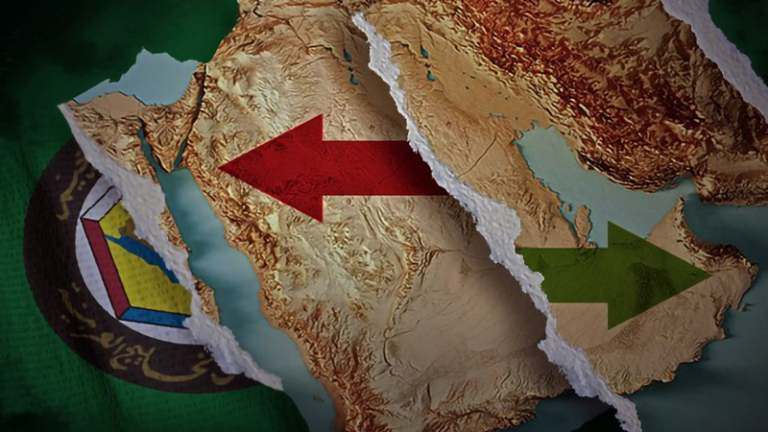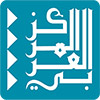
On October 8, 2023, Hezbollah began attacking Israel in order to support Hamas in Gaza. For months, both sides engaged in mutual shelling along the border. Their strikes initially were limited to a depth of under ten kilometers from the Blue Line, and then gradually expanded, but the conflict largely adhered to unwritten rules of engagement, with few violations. This dynamic changed on September 17 when Israel escalated its operations by exploding booby-trapped pagers used by Hezbollah members, and exploded the group’s walkie-talkies the next day. Israel then launched a series of targeted assassinations against Hezbollah’s senior leadership, culminating on September 27 with the assassination of Hezbollah Secretary-General Hassan Nasrallah in a massive bombing raid on the southern suburbs of Beirut. In response, Hezbollah intensified its attacks, extending its missile strikes to cities such as Haifa again and Afula and even to the suburbs of Tel Aviv. On September 30, Israel announced the beginning of a ground operation in southern Lebanon. This significant escalation signals a potential expanded and protracted conflict, with dangerous implications for the Gulf.
The positions of the Gulf Cooperation Council (GCC) countries toward this delicate situation appear divided. All share a deep concern about escalation and its potential impact on their domestic security, their relations with Iran, and their regional economic plans that depend on stability. Official statements from Gulf countries, however, reveal differences in their positions on the expansion of the war in Lebanon.
Kuwait strongly condemned Israel’s airstrikes and military operations against Lebanon, while Oman described Israel’s aggression as brutal and condemned its Hezbollah assassinations, emphasizing that such acts violate international law and norms. Qatar called for a halt to the ongoing Israeli aggression against Lebanon and Gaza. By contrast, the United Arab Emirates (UAE) limited its response to expressions of sympathy for the Lebanese people and concern over the unfolding events, pledging $100 million in humanitarian relief to Lebanon without explicitly condemning or even mentioning Israel’s actions. Saudi Arabia also expressed “great concern” over the situation in Lebanon and refrained from directly referencing Israel’s actions in Lebanon. Two days after Nasrallah’s assassination, the kingdom reaffirmed its stance in another statement reiterating its concern and pledging humanitarian aid to Lebanon without mentioning Israel’s military operations.
Varying Gulf Stances Toward Hezbollah
These divergences among GCC members mainly stem from their different positions toward Hezbollah, the primary target of Israel’s Lebanon campaign, and toward Iran, Hezbollah’s sponsor. In 2016, the GCC officially designated Hezbollah a terrorist organization, but individual Gulf states’ relations with the group have varied, experiencing periods of both tension and calm. Periods of de-escalation with Iran have not necessarily translated into improved relations with Hezbollah.
Kuwait’s strained relationship with Hezbollah dates to 1988, when it held Hezbollah’s military leader Imad Mughniyeh responsible for the hijacking of a Kuwait Airways plane and the death of two of its Kuwaiti passengers. Political factors inside Kuwait— some one-third of whose native citizens are Shia—have also played a role. After major confrontations in the 1980s between the government and a Shia group loyal to Iran, Shiite political factions and the Kuwaiti state reconciled following Saddam Hussein’s 1990 invasion of Kuwait. In 2008, the government of Emir Sheikh Sabah Al-Ahmad and Shia political groups formed an alliance, which was reflected in Kuwait’s neutral stance toward Hezbollah. Despite Hezbollah’s involvement in the Syrian civil war that began in 2011, Kuwait refrained from adopting a negative stance toward the group in order to maintain stability with its own Shia political factions. For his part, Nasrallah even praised Emir Sheikh Sabah in a 2020 speech.
Qatar’s relations with Hezbollah have experienced significant fluctuations. The peak of Qatar’s ties with the party occurred in 2006, when Qatar supported Hezbollah during Israel’s July-August war on Lebanon; then-Emir Sheikh Hamad bin Khalifa Al Thani visited Lebanon a month after the war, and Qatar helped finance the reconstruction of parts of southern Lebanon. Qatar also played a key role in mediating the Doha Agreement between rival Lebanese parties following the events of May 7, 2008, when Hezbollah and pro-government Sunni groups clashed in Beirut following the Lebanese government’s decision to dismantle Hezbollah’s telecommunications system. But relations between Qatar and Hezbollah soured after 2011 due to their conflicting stances on the Syrian revolution: Qatar supported the armed opposition to Bashar al-Assad, while Hezbollah fought for the Assad regime. During Israel’s current war on Gaza, relations have slightly warmed, as evidenced by Qatari-owned Al Jazeera’s positive coverage of Hezbollah’s role in the war and the appearance of Hezbollah officials on the channel after years of estrangement.
By contrast, Bahrain, Saudi Arabia, and the UAE all maintain deeply adversarial stances toward Hezbollah. Bahrain, with a majority-Shia citizenry, holds the most negative view of Hezbollah among the Gulf states. Bahrain considers Hezbollah a key supporter of its own Shia-led opposition movement and has accused the group of fomenting unrest since kingdom’s 2011 uprising. Hezbollah’s rhetoric against Bahrain’s ruling family has only exacerbated these tensions. The UAE has long been in conflict with Hezbollah, expelling a number of Lebanese Shia on various occasions as part of security measures and arresting others for alleged cooperation with Hezbollah. Another source of tension was the UAE’s initial support for the Syrian opposition, although Abu Dhabi later repaired relations with the Assad regime and since 2021 has worked to bring Assad back into the Arab fold. Hezbollah’s support for the Houthis during the war in Yemen, a conflict involving both Saudi Arabia and the UAE, has further strained relations.
Saudi Arabia has also had a long history of antagonism toward Hezbollah. Riyadh has consistently backed Hezbollah’s opponents in Lebanon, most notably former prime minister Rafik Hariri and later his son Saad. Saudi Arabia took a negative view of Hezbollah’s 2006 cross-border operation to capture two Israeli soldiers, which sparked the Israel-Hezbollah war that year, calling Hezbollah’s actions “irresponsible.” Riyadh supported the anti-Syria and anti-Hezbollah March 14 Alliance to secure victory in the 2009 Lebanese elections and has backed Syrian opposition factions during the Syrian conflict. Saudi Arabia has accused Hezbollah of providing training and logistical support for numerous Houthi attacks on the kingdom following the 2015 Saudi-led intervention in Yemen. Despite the 2023 Saudi-Iranian reconciliation, Riyadh’s position on Hezbollah has remained unchanged, with tensions persisting.
Recent Developments Expose the Complex Dynamics
A recent and rare occurrence was the March 2024 visit to Abu Dhabi by Wafiq Safa, the head of Hezbollah’s Liaison and Coordination Unit, to discuss the release of Lebanese detainees in the UAE. This meeting followed earlier discussions in Damascus between Safa and Emirati National Security Advisor Tahnoun bin Zayed Al Nahyan. The UAE’s restoration of relations with Damascus starting in 2018 enabled such communications, though it is unclear if the talks extended beyond the immediate issue of the detainees. In May 2024, the Saudi Ambassador to Lebanon spoke to a Hezbollah official at a condolence event at the Iranian Embassy in Beirut for the late President Ebrahim Raisi. But this brief encounter was unplanned and thus did not signal a significant improvement in relations between Saudi Arabia and Hezbollah.
Although both the UAE and Saudi Arabia have recently strengthened their ties with Tehran and Damascus, this has not led to any shifts in their approach to Hezbollah. Saudi media outlets continue to launch sharp attacks on the Lebanese group, with the intensity of the rhetoric showing no signs of abating. It appears that Gulf states with negative views of Hezbollah have been largely indifferent to the successive blows from Israel that the group suffered since last month. Some of these states may even view Israel’s escalation as an opportunity to weaken Hezbollah, which they see as a major threat to their interests. The weakening or elimination of Hezbollah’s military power could diminish Iranian influence in the region, helping to restore balance after years of Iran’s expansion of power through its regional allies. From their perspective, as Hezbollah represents the largest such ally and the spearhead of Iranian influence, Israel’s weakening of the group could force Iran to make a transition from regional expansion to a more defensive posture. This would offer Gulf states an opportunity to enhance their influence in the region.
At the same time, Iran’s October 1 missile attack on Israel underscored the continued danger of further regional escalation, as it signaled that Iran will not allow Israel to act with impunity. This has made the Gulf states increasingly anxious about how the conflict might develop and affect their own security. The prospect of a broader conflict involving Iran, its allies, and Israel raises serious concerns for the Gulf states, particularly regarding the economic and security fallout. The threat of Iranian attacks on critical Gulf oil facilities remains high. Indeed, there are lingering fears of a repeat of the September 2019 attacks on Saudi oil facilities in Abqaiq and Khurais that were attributed to Iran. There also is a risk of Iranian-allied groups targeting US military bases in the Gulf, nor can the possibility of unrest instigated by pro-Iran factions in Bahrain and Saudi Arabia be ruled out. Furthermore, the escalation threatens to undermine the Gulf’s economic diversification projects aimed at reducing dependence on oil, as foreign investors are likely to shy away from a region embroiled in conflict. Saudi Arabia in particular is facing stagnant levels of foreign investment and is looking to increase these flows to support its ambitious projects. An expansion of the conflict would only exacerbate these challenges.
Conclusion
While certain Gulf countries may see a weakened or diminished Hezbollah as beneficial, all are deeply concerned about the possibility of the conflict escalating into a full-scale war between Iran and Israel, especially if it draws in the United States. Such an expansion could lead to major security and economic consequences for the Gulf. While the Gulf states differ in their attitudes toward Hezbollah, they share a consensus on maintaining neutrality, keeping a distance from the conflict, and calling for de-escalation and a resolution to the crisis.
In this vein, the October 3 meeting between GCC ministers and Iran in Doha was a clear attempt to promote calm. According to Reuters, the Gulf states, driven by their concerns about potential threats to Gulf oil facilities if the conflict escalates, used the meeting to reassure Iran of their neutral stance toward the Iran-Israel conflict. Individual Gulf states also have tried to prevent the conflict from spiraling out of control. Qatar, for instance, has attempted to mediate an end to the Gaza war in collaboration with the United States and Egypt, though these efforts have yet to yield success. Saudi Arabia also reached out to Iran several months ago, urging it to avoid escalating the situation in light of the Israeli war on Gaza and offering investments inside Iran as a gesture of goodwill.
While the UAE and Bahrain have remained committed to their normalization agreements with Israel, efforts to normalize relations between Saudi Arabia and Israel have faltered due to the Gaza war. As the conflict broadens, the prospects for more peace deals with Israel seem increasingly distant and complex. Saudi Arabia has been keen to secure a defense agreement with the United States as part of a deal with Israel, and this has fueled its interest in pursuing normalization regardless of the outcome of the upcoming US presidential election. But achieving this depends on a resolution to the current conflict that would allow for the creation of conditions favorable to normalization, possibly through an extended Israeli-Hamas truce. Such a scenario appears increasingly unlikely anytime soon.
The trend toward a wider war presents significant risks to the Gulf states’ security and economic stability. But their capacity to influence the situation or prevent further escalation is limited. Their reliance on US intervention to manage and resolve the crisis remains paramount, as their efforts to mediate or de-escalate have so far been unsuccessful.

